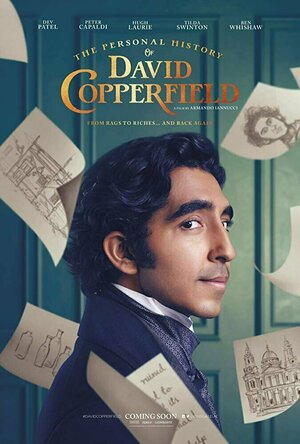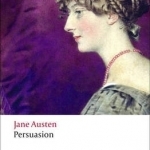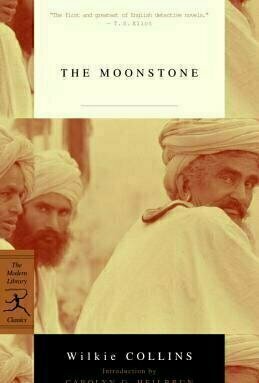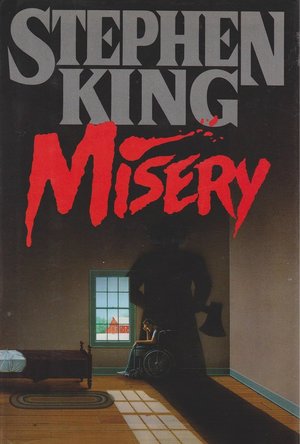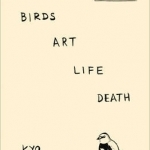Search
Neon's Nerd Nexus (360 KP) rated The Personal History of David Copperfield (2019) in Movies
Jan 29, 2020
Hard Cake
The personal history of david copperfield really disappointed me especially after such a cracking trailer and while no means a bad film it just really wasnt a film I enjoyed. What I was expecting was a sharply written, quirky yet dry and playful adaptation of the Charles Dickens novel something similar to a yorgos lanthimos film like the favorite for instance but sadly I found this movie to be extreamly dull, uninteresting and severely lacking overall. I wouldnt say its necessarily bad however it all just felt very flat to me. Characters didnt feel believable, humour seemed forced and while david patel burts at the seemes constantly with energy the film around him didnt seem to follow along the same. Very interesting ideas are present here and the emphases is on life almost being like a stage play with people we meet being the characters in it. See everyone in life is unique and has their own distinctive traits/interesting stories and no matter what happenes in our lives neither one is no less meaningless or important than the other. This does come across brilliantly and shows the bad traits of human nature, see everyone is on the path to happiness its just what they do and who they exploit or how much they choose to lie to get there and achieve sucess is diffrent from person to person. Then on a positive side it also shows how we should all realise where we have come from, to be greatful for what we have, to let our creativity flow and to appreciate these characters that enter our lives and inspire/care for us. So heres where I feel conflicted as much as I like these great ideas I feel they they just aren't integrated well enough with the dull story or the forced comedy and sure the film is well made but to watch its just not exciting or that engaging and the characters all became forgettable once off screen just like when watching a sketch show. Failing to keep my intrest constantly made the runtime feel a drag too and by the time I left I struggled to remember much of what had just happened infront of me wishing I'd of just stayed home and watched Perfume or The Favorite instead in the warm. No doubt some will enjoy this but will they be talking about it in a month? I highly doubt it.
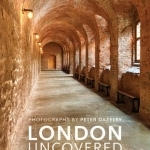
London Uncovered: Sixty Unusual Places to Explore
Book
London Uncovered opens the doors to sixty of the capital's most intriguing places, all visitable but...
Janeeny (200 KP) rated Persuasion in Books
Jun 10, 2019
I’m always a little dubious about certain ‘Classics’. Give me a Charles Dickens or an HG Wells any day of the week and I’m happy. I become a little more dubious around what I call ‘society’ classics, like George Elliot and Jane Austen. It all stems from the time I read Middlemarch and found it to be a 900 page soap opera where NOTHING ACTUALLY HAPPENS!! Although so far I have never been disappointed by a Jane Austen novel, when I have to read a book that essentially revolves around social customs and classes I break out in a cold sweat! .
So I was a little apprehensive when my recommended book for the month from my Penguin Reading challenge was 'Persuasion', but at 249 pages I thought I’d just crack on and get it over with.
I was pleasantly surprised.
Persuasion is about a young woman named Anne Elliot who, previous to the beginning of the story, was betrothed to Naval Officer Frederick Wentworth, but broke it off after being 'persuaded' (see what they did there!) by her family and a close friend that the match was beneath her. It is seven years later and Anne discovers that Wentworth has returned and is, lamentably, involved in her social circle. What follows is a deep exploration of Anne's feelings, thoughts and regrets on the decision she made 7 years ago, and the circumstances that may allow her to make amends.
As I said before I haven’t been disappointed by a Jane Austen novel yet, and this one was no exception. It is essentially a ‘will they wont they’ story that does keep you guessing until the end. Whilst it is a basic storyline it is laced with little dramas that keep you engaged but do not overshadow the main story.
In the introduction in my book it says that Jane Austen once described Anne Elliot as “almost too good for me” I can understand what she means as Anne is a very self-effacing heroin. She puts others thoughts and needs before her own and has an equitable view of the world. Unfortunately in my eyes this does make her far too pliant, and whilst this aspect of her does lend to the back story of why she never married Wentworth seven years ago, when she is insulted and exploited by her family I did find myself wishing she had a little more gumption.
Aside from that I found it a very pleasant societal love story.
So I was a little apprehensive when my recommended book for the month from my Penguin Reading challenge was 'Persuasion', but at 249 pages I thought I’d just crack on and get it over with.
I was pleasantly surprised.
Persuasion is about a young woman named Anne Elliot who, previous to the beginning of the story, was betrothed to Naval Officer Frederick Wentworth, but broke it off after being 'persuaded' (see what they did there!) by her family and a close friend that the match was beneath her. It is seven years later and Anne discovers that Wentworth has returned and is, lamentably, involved in her social circle. What follows is a deep exploration of Anne's feelings, thoughts and regrets on the decision she made 7 years ago, and the circumstances that may allow her to make amends.
As I said before I haven’t been disappointed by a Jane Austen novel yet, and this one was no exception. It is essentially a ‘will they wont they’ story that does keep you guessing until the end. Whilst it is a basic storyline it is laced with little dramas that keep you engaged but do not overshadow the main story.
In the introduction in my book it says that Jane Austen once described Anne Elliot as “almost too good for me” I can understand what she means as Anne is a very self-effacing heroin. She puts others thoughts and needs before her own and has an equitable view of the world. Unfortunately in my eyes this does make her far too pliant, and whilst this aspect of her does lend to the back story of why she never married Wentworth seven years ago, when she is insulted and exploited by her family I did find myself wishing she had a little more gumption.
Aside from that I found it a very pleasant societal love story.
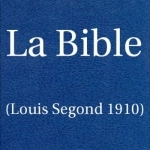
La Bible(Louis Segond 1910) French Bible
Reference
App
This application contains French Bible(Version Louis Segond 1910). Cette application contient la...

London Map and Walks, Full Version
Travel and Navigation
App
Lose Yourself Without Getting Lost. This handy application presents you several self-guided city...

Chambers Dictionary of Great Quotations
Book
With over 25,000 quotations from over 4,000 sources, The Chambers Dictionary of Great Quotations is...
Phil Leader (619 KP) rated The Moonstone in Books
Nov 20, 2019
Of all the books I had to read at school, The Moonstone was probably the only novel I really enjoyed. It is one of the first 'whodunnit' type of books and, remarkably, it manages to hit virtually every requirement of the genre dead centre. If this book was written today, it would still be a classic.
The Moonstone of the title is a rare yellow diamond, stolen from an Indian shrine by colonialists. Thought to be unlucky it is left to the young Rachel Verinder. The night after her 18th birthday party the stone is stolen from her rooms, and the rest of the novel describes how the various players eventually manage to solve the crime.
The plot features twists and turns galore, false trails and red herrings enough for two detective stories. Although the crime involved is 'only' theft rather than the more usual murder it is no less engaging as a story. The characters are well drawn and - social reformer that Collins was - there are strong women and intelligent and interesting servants as well as the landed gentry and philanthropists that inhabit the world of country estates in the mid 19th century that the novel is set in.
One feature of the book is that the story is told from the viewpoint of a number of the players. Firstly (and for nearly half the book) we are introduced to the Verinders and the theft by Gabriel Betteredge, a long serving family retainer who is head of the staff and a sort of de facto butler. Betteredge's narrative is charming and witty, full of dry asides and observations. His habit of picking passages from Robinson Crusoe and applying them to daily life is a quirk that is completely in keeping with his character.
Once the story moves to London, the narrative is taken up by various other characters, sometimes just for a short journal entry, sometimes for extended periods of time. Collins imbues each of these parts with a different voice really skillfully, keeping each character very separate.
The solution to the mystery of who stole the diamond and why is convoluted but also very simple. The whole story is well crafted and fits together really well.
The only negative points really are those imposed on Collins by the time he was writing this. There is an overlong introduction about the diamond in India (it seems that in Victorian novels the long winded introduction is somehow expected by the reader) and the pace slows somewhat in London as there is a lot of description about the character's social standings and financial affairs that just aren't as relevant today.
Nevertheless this really is as good a book as I remember. I certainly rate Collins a lot higher than Charles Dickens as a writer. Definitely recommended for anyone who likes a detective mystery which will keep the reader guessing until the very end.
The Moonstone of the title is a rare yellow diamond, stolen from an Indian shrine by colonialists. Thought to be unlucky it is left to the young Rachel Verinder. The night after her 18th birthday party the stone is stolen from her rooms, and the rest of the novel describes how the various players eventually manage to solve the crime.
The plot features twists and turns galore, false trails and red herrings enough for two detective stories. Although the crime involved is 'only' theft rather than the more usual murder it is no less engaging as a story. The characters are well drawn and - social reformer that Collins was - there are strong women and intelligent and interesting servants as well as the landed gentry and philanthropists that inhabit the world of country estates in the mid 19th century that the novel is set in.
One feature of the book is that the story is told from the viewpoint of a number of the players. Firstly (and for nearly half the book) we are introduced to the Verinders and the theft by Gabriel Betteredge, a long serving family retainer who is head of the staff and a sort of de facto butler. Betteredge's narrative is charming and witty, full of dry asides and observations. His habit of picking passages from Robinson Crusoe and applying them to daily life is a quirk that is completely in keeping with his character.
Once the story moves to London, the narrative is taken up by various other characters, sometimes just for a short journal entry, sometimes for extended periods of time. Collins imbues each of these parts with a different voice really skillfully, keeping each character very separate.
The solution to the mystery of who stole the diamond and why is convoluted but also very simple. The whole story is well crafted and fits together really well.
The only negative points really are those imposed on Collins by the time he was writing this. There is an overlong introduction about the diamond in India (it seems that in Victorian novels the long winded introduction is somehow expected by the reader) and the pace slows somewhat in London as there is a lot of description about the character's social standings and financial affairs that just aren't as relevant today.
Nevertheless this really is as good a book as I remember. I certainly rate Collins a lot higher than Charles Dickens as a writer. Definitely recommended for anyone who likes a detective mystery which will keep the reader guessing until the very end.
Zuky the BookBum (15 KP) rated Misery in Books
Mar 15, 2018
Also read my review here: http://bookbum.weebly.com/book-reviews/misery-by-stephen-king
<b><i>Annie Annie oh Annie please please no please dont Annie I swear to you Ill be good I swear to God Ill be good please give me a chance to be good OH ANNIE PLEASE LET ME BE GOOD -
Just a little pain. Then this nasty business will be behind us for good Paul.</b></i>
Well hot fucking damn. Is this the best book Ive read all year? <b>I think it might be.</b> I am officially a Stephen King fan. A Stephen King convert as my mother is calling me. Misery is a goddamn masterpiece. Its <i>so</i> tense. I dont know how anyone can write so well that Im actually squirming. <b>LEGIT SQUIRMING AS I READ.</b>
Misery is about a bestselling author, Paul Sheldon, who, after celebrating his completion of his next (and best) book, drinks a little too much champagne and gets himself into a nasty car accident in the middle of nowhere. He wakes to find his legs shattered but splintered (splinted???) in a mysterious house. Luckily, or unluckily, hes found himself saved and in the capable hands of his number one fan and ex-nurse, Annie Wilkes.
I put off reading Misery for, oh I dont know, maybe 5 years? I watched the film, of course, because disliking a film can be down to a number of variables, the wrong director, actors you dislike, bad script etc, but not liking a book, <i>a Stephen King book</i>, is down to one and one thing only, the author. And I was <i>so</i> terrified I wouldnt like Stephen King! Honestly, terrified is this right word for it. I didnt want to turn around in a house, no, a society, that claims Stephen King is a modern day Charles Dickens, of sorts, and say nah, not that into him myself. But lo and behold, I ended up liking both the film and the book, thank Christ. The book more so than the film, but isnt that usually the case? Although the actors for both Paul and Annie in the film version were <i>spot on.</i>
I dont think Ive ever been so vocal whilst reading a book. Misery had me yelping and oohing and arring and laughing and yucking all the way through. Kings writing is so vivid you <i>are</i> Paul Sheldon for the duration of the book. Youre Paul, rolling around in his wheelchair, holding your breath and crying and sweating, hoping that car you hear isnt Annies. Hoping shes holding those Godsent Novril tablets every few hours to subdue your pain. Wondering how the hell youre ever going to be able to escape. You completely immerse yourself in the nail biting story, page by page. This is a perfect novel from start to finish, thats all I have left to say.
If youve never read Stephen King before, start with Misery. <b>I double donkey dare you.</b>
<b><i>Annie Annie oh Annie please please no please dont Annie I swear to you Ill be good I swear to God Ill be good please give me a chance to be good OH ANNIE PLEASE LET ME BE GOOD -
Just a little pain. Then this nasty business will be behind us for good Paul.</b></i>
Well hot fucking damn. Is this the best book Ive read all year? <b>I think it might be.</b> I am officially a Stephen King fan. A Stephen King convert as my mother is calling me. Misery is a goddamn masterpiece. Its <i>so</i> tense. I dont know how anyone can write so well that Im actually squirming. <b>LEGIT SQUIRMING AS I READ.</b>
Misery is about a bestselling author, Paul Sheldon, who, after celebrating his completion of his next (and best) book, drinks a little too much champagne and gets himself into a nasty car accident in the middle of nowhere. He wakes to find his legs shattered but splintered (splinted???) in a mysterious house. Luckily, or unluckily, hes found himself saved and in the capable hands of his number one fan and ex-nurse, Annie Wilkes.
I put off reading Misery for, oh I dont know, maybe 5 years? I watched the film, of course, because disliking a film can be down to a number of variables, the wrong director, actors you dislike, bad script etc, but not liking a book, <i>a Stephen King book</i>, is down to one and one thing only, the author. And I was <i>so</i> terrified I wouldnt like Stephen King! Honestly, terrified is this right word for it. I didnt want to turn around in a house, no, a society, that claims Stephen King is a modern day Charles Dickens, of sorts, and say nah, not that into him myself. But lo and behold, I ended up liking both the film and the book, thank Christ. The book more so than the film, but isnt that usually the case? Although the actors for both Paul and Annie in the film version were <i>spot on.</i>
I dont think Ive ever been so vocal whilst reading a book. Misery had me yelping and oohing and arring and laughing and yucking all the way through. Kings writing is so vivid you <i>are</i> Paul Sheldon for the duration of the book. Youre Paul, rolling around in his wheelchair, holding your breath and crying and sweating, hoping that car you hear isnt Annies. Hoping shes holding those Godsent Novril tablets every few hours to subdue your pain. Wondering how the hell youre ever going to be able to escape. You completely immerse yourself in the nail biting story, page by page. This is a perfect novel from start to finish, thats all I have left to say.
If youve never read Stephen King before, start with Misery. <b>I double donkey dare you.</b>
Hazel (1853 KP) rated Birds Art Life Death: A Field Guide to the Small and Significant in Books
May 23, 2017
Unconventional Field Guide
This eBook was provided by the publisher via NetGalley in exchange for an honest review
There comes a time when novelists, as with any creative professional, become unmotivated or at a loss as to what to write about – writer’s block. Such an occurrence happened to children’s novelist, Kyo Maclear. Through the work of her songwriter husband, Maclear discovers a musician struggling with the demands of his career in a competitive world, causing anxiety and depression. In order to distance himself from the stresses of his employment, the musician finds solace in bird watching. Intrigued as to what prompted his ardent interest in birds, Maclear tags along with him for a year, and thus, Birds Art Life Death: A Field Guide to the Small and Significant was born.
To preempt any confusion, despite what the title may suggest, this book is not a field guide about birds. When Maclear began talking to the musician (who remains anonymous except for a mention in the acknowledgements), she was completely nescient on the subject of birds and had a lot to learn. Although some facts are stated in the narrative, Birds Art Life Death is more a reflective memoir of the author’s life. Using bird watching as a key example, Maclear explores the ways artists of all kinds have retreated from the pressures of everyday life in order to take time to appreciate the smaller, less celebrated aspects.
Bird watching, in particular, provides the musician and Maclear the opportunity to sit still (literally) and just be. Paying attention to the numerous habitats of the winged-creatures provides the author with a new outlook on life, and fodder to include in future works (hence this book). It also gives her the opportunity to reflect on her past, her parents – particularly her anticipatory grief toward her elderly father – her husband, and her sons. In fact, the author’s own life features as heavily as the bird watching trips she goes on.
Written in chronological order from winter through to autumn, Maclear’s knowledge of birds increases, as does her awareness of the world and life around her. However, her sequence of events is often interrupted by retrospective thought and additional research, which causes the book to head in too many directions at once. It is as though the author’s disorganized mind has been spilled onto the page for everyone to see.
It is clear, however, that Maclear has put an exceptional amount of time into researching the topic of birds. She does not regurgitate factual, mundane information about the species; instead she has delved deeper and from an artistic point of view, to discover so much more than an encyclopedic textbook would provide.
From a myriad of resources, Maclear has pulled out quotes from bird enthusiasts and creative individuals alike to emphasise the effects birds have had on people’s lives and artistic careers. Interestingly, many artists and authors have found the delicate creatures fascinating and included them in their works, for example: Leonardo da Vinci, Charles Dickens, William Faulkner and Iris Murdoch.
Birds Art Life Death is unlikely to increase your knowledge of birds or bird watching, however it may inspire you to take time out to explore and enjoy nature. Whether you are a creative individual in need of a break, or an office worker desperately wanting some fresh air, Maclear encourages you to step back from the trials of life and find pleasure in the little, but highly significant, facts of being.
There comes a time when novelists, as with any creative professional, become unmotivated or at a loss as to what to write about – writer’s block. Such an occurrence happened to children’s novelist, Kyo Maclear. Through the work of her songwriter husband, Maclear discovers a musician struggling with the demands of his career in a competitive world, causing anxiety and depression. In order to distance himself from the stresses of his employment, the musician finds solace in bird watching. Intrigued as to what prompted his ardent interest in birds, Maclear tags along with him for a year, and thus, Birds Art Life Death: A Field Guide to the Small and Significant was born.
To preempt any confusion, despite what the title may suggest, this book is not a field guide about birds. When Maclear began talking to the musician (who remains anonymous except for a mention in the acknowledgements), she was completely nescient on the subject of birds and had a lot to learn. Although some facts are stated in the narrative, Birds Art Life Death is more a reflective memoir of the author’s life. Using bird watching as a key example, Maclear explores the ways artists of all kinds have retreated from the pressures of everyday life in order to take time to appreciate the smaller, less celebrated aspects.
Bird watching, in particular, provides the musician and Maclear the opportunity to sit still (literally) and just be. Paying attention to the numerous habitats of the winged-creatures provides the author with a new outlook on life, and fodder to include in future works (hence this book). It also gives her the opportunity to reflect on her past, her parents – particularly her anticipatory grief toward her elderly father – her husband, and her sons. In fact, the author’s own life features as heavily as the bird watching trips she goes on.
Written in chronological order from winter through to autumn, Maclear’s knowledge of birds increases, as does her awareness of the world and life around her. However, her sequence of events is often interrupted by retrospective thought and additional research, which causes the book to head in too many directions at once. It is as though the author’s disorganized mind has been spilled onto the page for everyone to see.
It is clear, however, that Maclear has put an exceptional amount of time into researching the topic of birds. She does not regurgitate factual, mundane information about the species; instead she has delved deeper and from an artistic point of view, to discover so much more than an encyclopedic textbook would provide.
From a myriad of resources, Maclear has pulled out quotes from bird enthusiasts and creative individuals alike to emphasise the effects birds have had on people’s lives and artistic careers. Interestingly, many artists and authors have found the delicate creatures fascinating and included them in their works, for example: Leonardo da Vinci, Charles Dickens, William Faulkner and Iris Murdoch.
Birds Art Life Death is unlikely to increase your knowledge of birds or bird watching, however it may inspire you to take time out to explore and enjoy nature. Whether you are a creative individual in need of a break, or an office worker desperately wanting some fresh air, Maclear encourages you to step back from the trials of life and find pleasure in the little, but highly significant, facts of being.
Hazel (1853 KP) rated Birds Art Life Death: A Field Guide to the Small and Significant in Books
Dec 7, 2018
<i>This eBook was provided by the publisher via NetGalley in exchange for an honest review</i>
There comes a time when novelists, as with any creative professional, become unmotivated or at a loss as to what to write about – writer’s block. Such an occurrence happened to children’s novelist, Kyo Maclear. Through the work of her songwriter husband, Maclear discovers a musician struggling with the demands of his career in a competitive world, causing anxiety and depression. In order to distance himself from the stresses of his employment, the musician finds solace in bird watching. Intrigued as to what prompted his ardent interest in birds, Maclear tags along with him for a year, and thus, <i>Birds Art Life Death: A Field Guide to the Small and Significant</i> was born.
To preempt any confusion, despite what the title may suggest, this book is not a field guide about birds. When Maclear began talking to the musician (who remains anonymous except for a mention in the acknowledgements), she was completely nescient on the subject of birds and had a lot to learn. Although some facts are stated in the narrative, <i>Birds Art Life Death</i> is more a reflective memoir of the author’s life. Using bird watching as a key example, Maclear explores the ways artists of all kinds have retreated from the pressures of everyday life in order to take time to appreciate the smaller, less celebrated aspects.
Bird watching, in particular, provides the musician and Maclear the opportunity to sit still (literally) and just be. Paying attention to the numerous habitats of the winged-creatures provides the author with a new outlook on life, and fodder to include in future works (hence this book). It also gives her the opportunity to reflect on her past, her parents – particularly her anticipatory grief toward her elderly father – her husband, and her sons. In fact, the author’s own life features as heavily as the bird watching trips she goes on.
Written in chronological order from winter through to autumn, Maclear’s knowledge of birds increases, as does her awareness of the world and life around her. However, her sequence of events is often interrupted by retrospective thought and additional research, which causes the book to head in too many directions at once. It is as though the author’s disorganized mind has been spilled onto the page for everyone to see.
It is clear, however, that Maclear has put an exceptional amount of time into researching the topic of birds. She does not regurgitate factual, mundane information about the species; instead she has delved deeper and from an artistic point of view, to discover so much more than an encyclopedic textbook would provide.
From a myriad of resources, Maclear has pulled out quotes from bird enthusiasts and creative individuals alike to emphasise the effects birds have had on people’s lives and artistic careers. Interestingly, many artists and authors have found the delicate creatures fascinating and included them in their works, for example: Leonardo da Vinci, Charles Dickens, William Faulkner and Iris Murdoch.
<i>Birds Art Life Death</i> is unlikely to increase your knowledge of birds or bird watching, however it may inspire you to take time out to explore and enjoy nature. Whether you are a creative individual in need of a break, or an office worker desperately wanting some fresh air, Maclear encourages you to step back from the trials of life and find pleasure in the little, but highly significant, facts of being.
There comes a time when novelists, as with any creative professional, become unmotivated or at a loss as to what to write about – writer’s block. Such an occurrence happened to children’s novelist, Kyo Maclear. Through the work of her songwriter husband, Maclear discovers a musician struggling with the demands of his career in a competitive world, causing anxiety and depression. In order to distance himself from the stresses of his employment, the musician finds solace in bird watching. Intrigued as to what prompted his ardent interest in birds, Maclear tags along with him for a year, and thus, <i>Birds Art Life Death: A Field Guide to the Small and Significant</i> was born.
To preempt any confusion, despite what the title may suggest, this book is not a field guide about birds. When Maclear began talking to the musician (who remains anonymous except for a mention in the acknowledgements), she was completely nescient on the subject of birds and had a lot to learn. Although some facts are stated in the narrative, <i>Birds Art Life Death</i> is more a reflective memoir of the author’s life. Using bird watching as a key example, Maclear explores the ways artists of all kinds have retreated from the pressures of everyday life in order to take time to appreciate the smaller, less celebrated aspects.
Bird watching, in particular, provides the musician and Maclear the opportunity to sit still (literally) and just be. Paying attention to the numerous habitats of the winged-creatures provides the author with a new outlook on life, and fodder to include in future works (hence this book). It also gives her the opportunity to reflect on her past, her parents – particularly her anticipatory grief toward her elderly father – her husband, and her sons. In fact, the author’s own life features as heavily as the bird watching trips she goes on.
Written in chronological order from winter through to autumn, Maclear’s knowledge of birds increases, as does her awareness of the world and life around her. However, her sequence of events is often interrupted by retrospective thought and additional research, which causes the book to head in too many directions at once. It is as though the author’s disorganized mind has been spilled onto the page for everyone to see.
It is clear, however, that Maclear has put an exceptional amount of time into researching the topic of birds. She does not regurgitate factual, mundane information about the species; instead she has delved deeper and from an artistic point of view, to discover so much more than an encyclopedic textbook would provide.
From a myriad of resources, Maclear has pulled out quotes from bird enthusiasts and creative individuals alike to emphasise the effects birds have had on people’s lives and artistic careers. Interestingly, many artists and authors have found the delicate creatures fascinating and included them in their works, for example: Leonardo da Vinci, Charles Dickens, William Faulkner and Iris Murdoch.
<i>Birds Art Life Death</i> is unlikely to increase your knowledge of birds or bird watching, however it may inspire you to take time out to explore and enjoy nature. Whether you are a creative individual in need of a break, or an office worker desperately wanting some fresh air, Maclear encourages you to step back from the trials of life and find pleasure in the little, but highly significant, facts of being.
